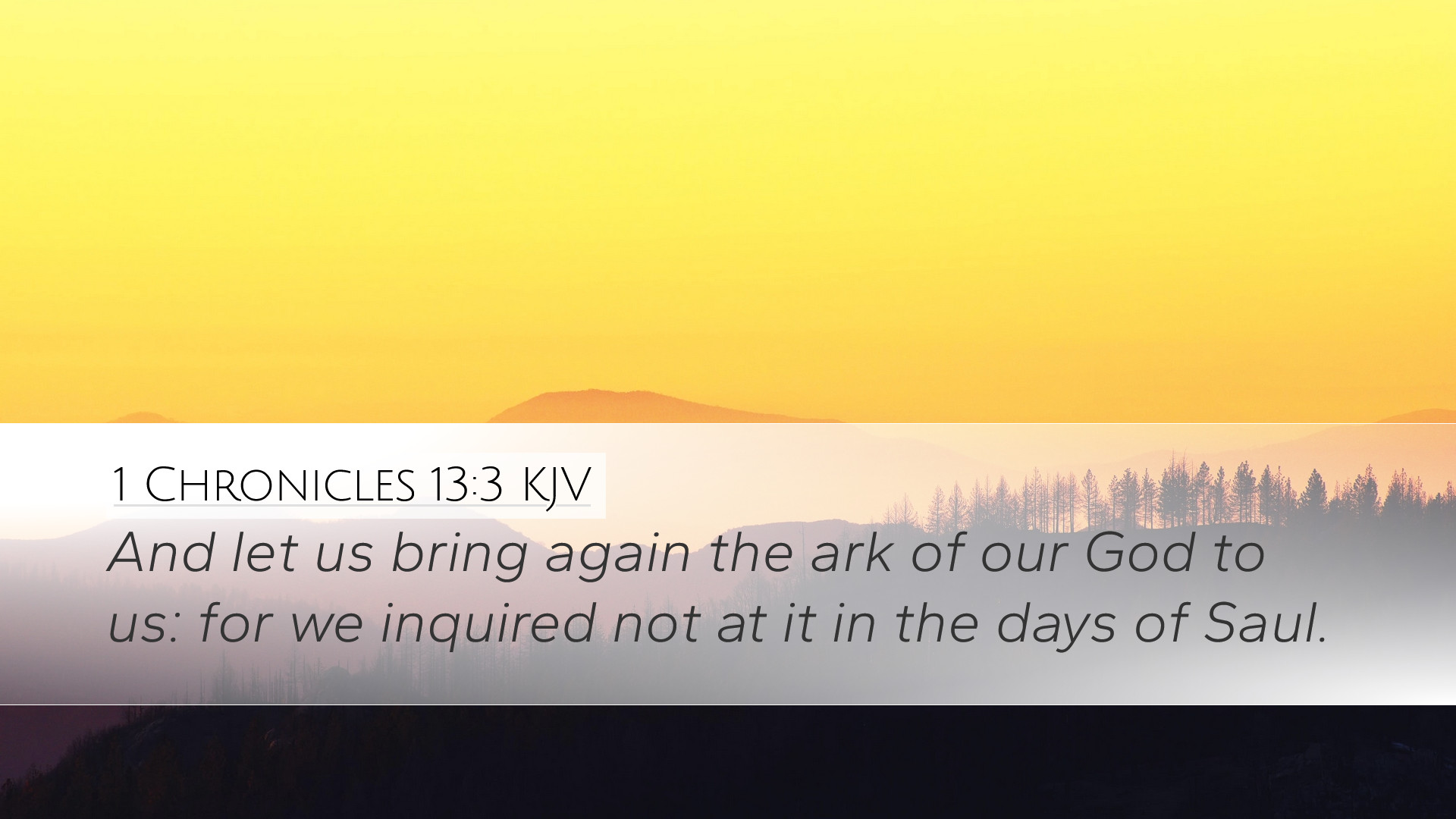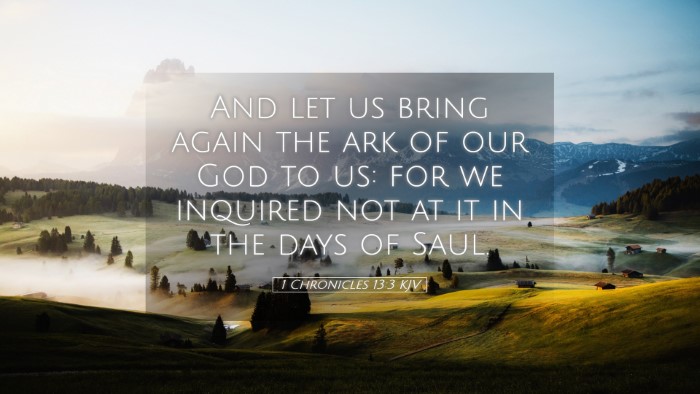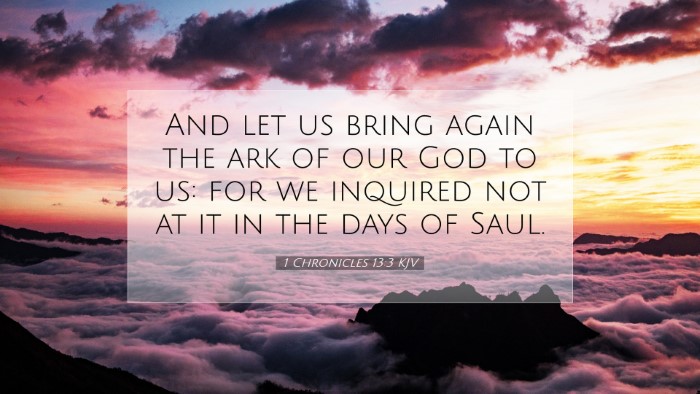Commentary on 1 Chronicles 13:3
In this passage, we find a pivotal moment in the history of Israel, marked by the decision to retrieve the Ark of the Covenant and bring it to Jerusalem. This event is notable not just for its historical implications, but also for its deep theological significance.
Context and Historical Background
The Book of Chronicles often focuses on the religious aspects of the kingdom of Israel, emphasizing the importance of proper worship and adherence to God's laws. In 1 Chronicles 13:3, we encounter King David, who is portrayed as a man after God's own heart, seeking to establish a spiritual foundation for his reign. His desire to bring the Ark back signifies a longing for God's presence among His people.
The Decision to Retrieve the Ark
“And let us bring again the ark of our God to us: for we enquired not at it in the days of Saul.”
This statement reveals several key insights:
- Recognition of Absence: David acknowledges that under Saul's reign, there was neglect regarding the Ark—an oversight that symbolized a disconnect between the Israelites and their divine covenant.
- Desire for God's Presence: David's initiative highlights a fundamental aspect of effective leadership in Israel—an awareness of the necessity of God's presence for prosperity and success.
- Corporate Responsibility: David’s call reflects a communal responsibility, emphasizing that the nation collectively sought the favor of God, contrasting the individualism often showcased in later texts.
Theological Implications
Through this verse, several theological themes arise that continue to resonate within contemporary discourse among theologians and pastors:
- God’s Covenant Faithfulness: The Ark represents not merely a physical object but the abiding presence and promises of God to Israel. David's intention emphasizes a return to covenantal practices.
- The Nature of True Worship: The context implies that worship must be both personal and communal. The Ark, when returned, could foster collective worship rather than individualistic practices.
- Leadership and Spirituality: David's example provides a model of how leaders should inspire their communities toward spiritual renewal and reliance on God.
Commentary from Historical Figures
Matthew Henry
Henry emphasizes David’s desire to seek God’s presence, noting that true success in governance hinges upon acknowledging and inviting divine guidance. He reflects on the previous neglect during Saul’s reign, positing that a leader’s spiritual oversight can profoundly affect a nation’s spiritual trajectory.
Albert Barnes
Barnes highlights the importance of corporate worship and community involvement in the retrieval of the Ark. He argues that this event marks a significant step toward restoring Israel’s spiritual health, reinforcing the belief that God’s presence is vital to national identity.
Adam Clarke
Clarke provides a more devotional angle, suggesting that the prayerful desire to bring the Ark back aligns with God's will for His people to be in constant communion with Him. His commentary calls attention to the implications of neglecting such communion, warning about the repercussions for both individuals and nations.
Practical Applications
For pastors and theologians today, this verse presents several practical applications:
- Invitation for Renewal: Churches may reflect on whether they are seeking God’s presence genuinely, asking if they are bringing Him into their worship practices.
- Community Engagement: David’s actions promote community initiative in spiritual matters; congregations should strive for holistic engagement in faith.
- Assessing Leadership: Leaders are encouraged to model a dependency on God in their ministries and to foster environments that invite God's presence.
Conclusion
1 Chronicles 13:3 encapsulates a significant moment of spiritual awakening for Israel, illustrating the importance of returning to God’s presence. The insights gathered from the commentaries of Henry, Barnes, and Clarke collectively underscore the necessity of acknowledging God in private and public life. As modern-day believers, we are challenged to reflect on how we pursue God’s presence in our communities and personal lives.


